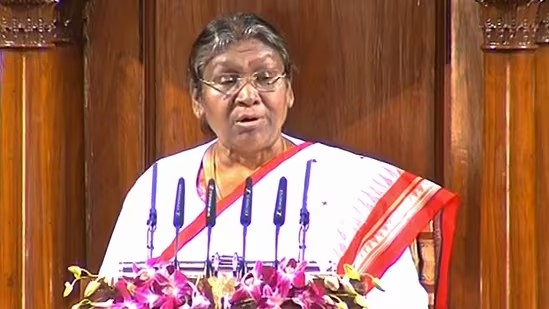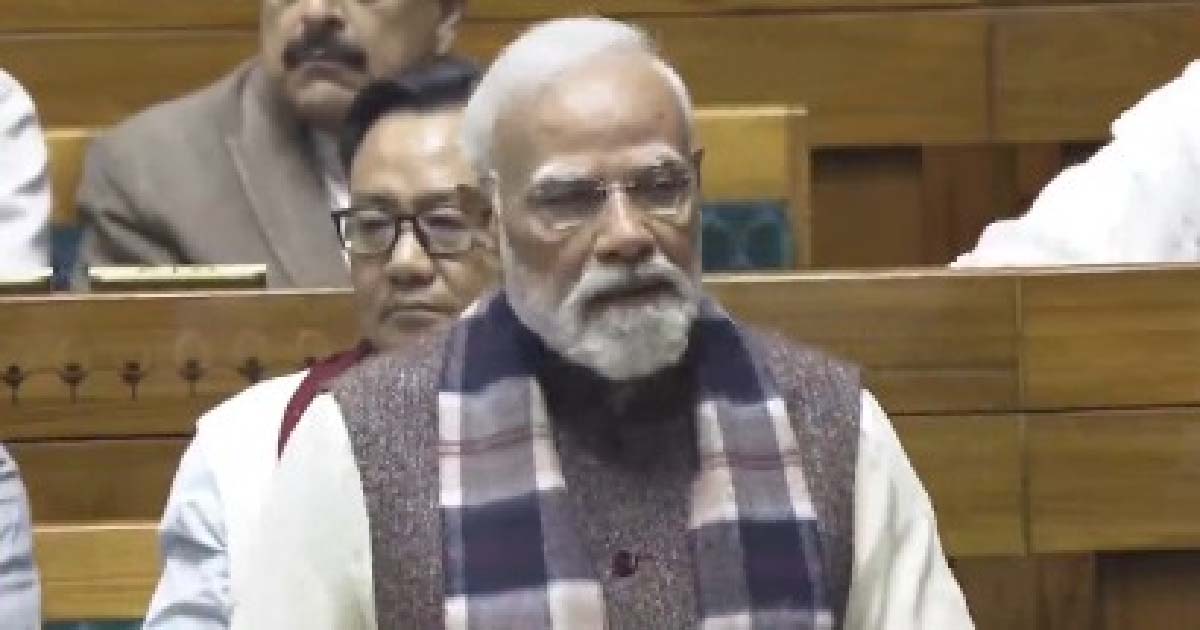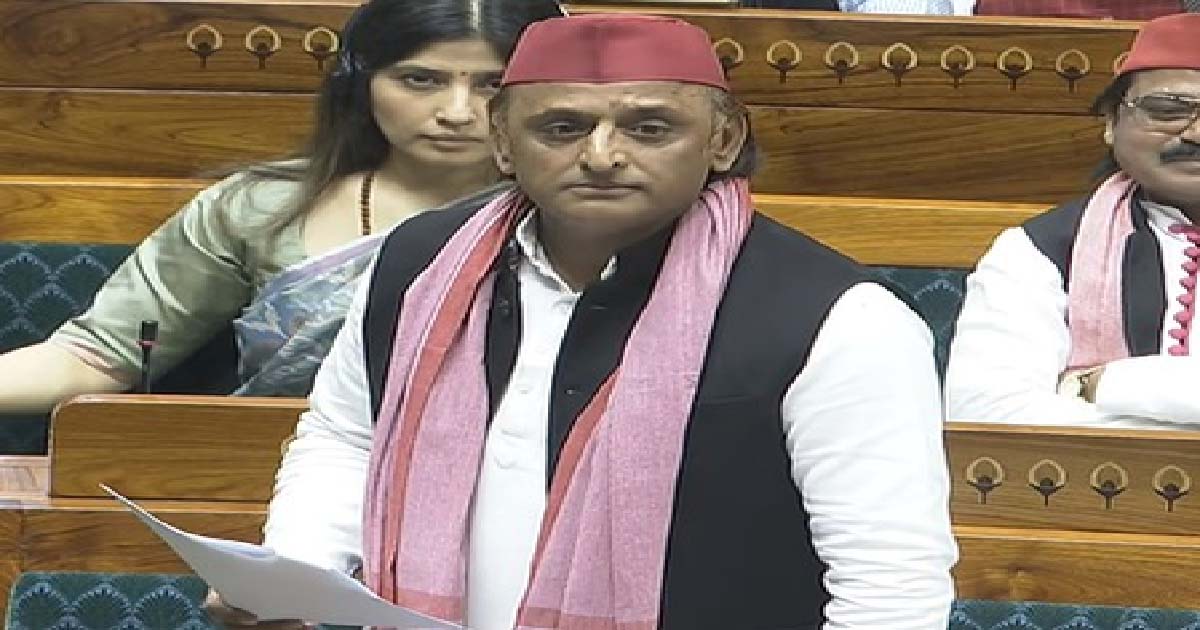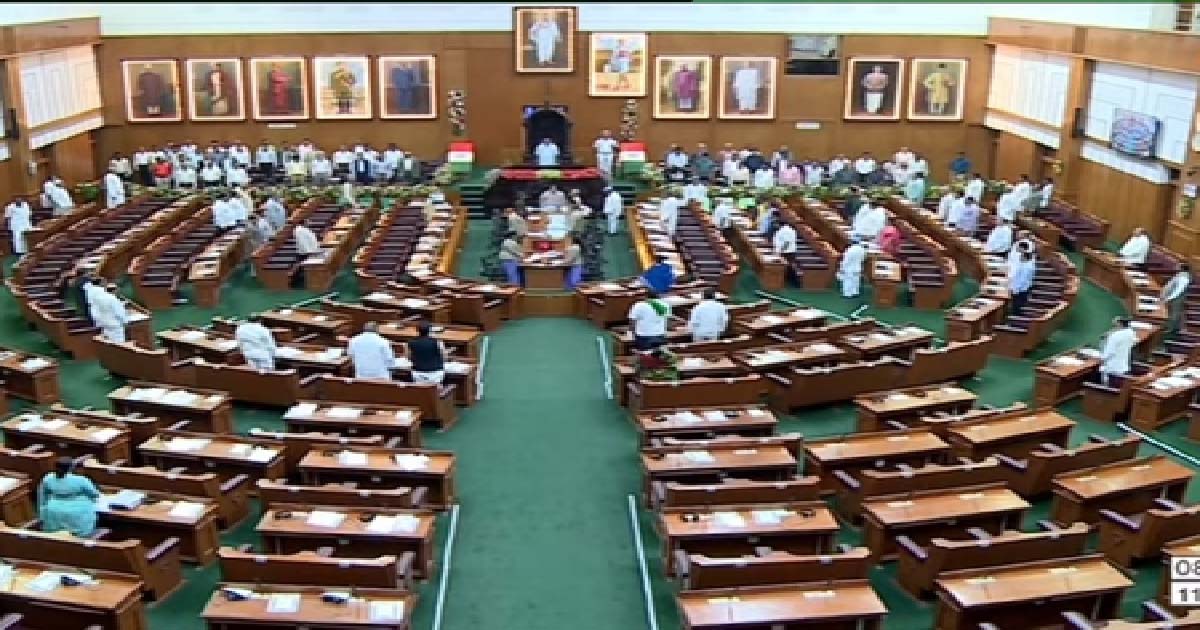National News
‘Enough Is Enough’: Anguished President Murmu Asks Nation To Wake Up, End Crimes Against Women

Declaring that “enough is enough”, President Droupadi Murmu on Wednesday said it is time for India to wake up to the “perversion” of crimes against women and counter the mindset that sees women as “less powerful, less capable, less intelligent”.
“Those who share such views then go further and see the female as an object… We owe it to our daughters to remove the hurdles from their path of winning freedom from fear,” Murmu said in an exclusive signed article.
Women’s Safety: Enough is Enough
Referring to the August 9 rape and murder of a junior doctor in a Kolkata hospital, a “dismayed and horrified” president said what is even more depressing is that it is part of a series of crimes against women.
Murmu said no civilised society can allow daughters and sisters to be subjected to such atrocities. “The nation is bound to be outraged, and so am I,” she wrote.
The hard-hitting and personalised article, titled “Women’s Safety: Enough is Enough”, is the first time the president has articulated her views on the August 9 Kolkata incident that has once again shaken the conscience of the nation and led to widespread, continuing protests.
The president gave the article after a detailed conversation on topical issues with a team of PTI senior editors, who called on her at Rashtrapati Bhavan to mark the 77th anniversary of the news agency’s founding on August 27, 1947.
“Even as students, doctors and citizens were protesting in Kolkata, criminals remained on the prowl elsewhere. The victims include even kindergarten girls,” Murmu said.
Did we learn our lessons?, Asks President
During the interaction, she recalled her recent meeting with a group of schoolchildren on Raksha Bandhan. “They asked me innocently if they could be assured that there would be no recurrence of the Nirbhaya-type incident in future,” the president said, referring to the brutal rape and murder of a physiotherapy intern in Delhi in December 2012.
She noted that an outraged nation then made plans and devised strategies, and the initiatives did make some difference. In the 12 years since, there have been countless tragedies of similar nature though only few drew nationwide attention, Murmu said.
“Did we learn our lessons? As social protests petered out, these incidents got buried into a deep and inaccessible recess of social memory, to be recalled only when another heinous crime takes place,” she said.
Taking a macro view of the rights of women, she said they have had to fight for every inch of ground they have won. Social prejudices as well as some customs and practices have always opposed the expansion of women’s rights, Murmu added.
“This is a rather deplorable mindset… This mindset sees the female as a lesser human being, less powerful, less capable, less intelligent,” she wrote.
In her view, it is the objectification of women by a few that is behind the crimes against women.
“It is ingrained deeply in the minds of such people,” the president said, stressing that countering this mindset is a task for both the State and society.
Acknowledging that there have been laws and social campaigns, she said, “Yet, there is something that continues to come in the way and to torment us.”
History Hurts
History, the president said, “often hurts” and societies scared to face history resort to “collective amnesia” to bury their heads in the sand like the proverbial ostrich.
“Now the time has come not only to face history squarely but also to search within our souls and probe the pathology of crimes against women,” she said in her impassioned appeal.
“Let us deal with this perversion in a comprehensive manner so as to curb it right at the beginning. We can do this only if we honour the memory of the victims by cultivating a social culture of remembering them to remind us of our failures in the past and prepare us to be more vigilant in future,” Murmu said.
The society needs honest, unbiased self-introspection, and ask itself some difficult questions, the president said.
“Where have we erred? And what can we do to remove the errors? Without finding out the answer to that question, the half of our population cannot live as freely as the other half,” she said.
National News
PM Modi recalls how Vande Mataram defied British oppression, stood ‘like a rock’

New Delhi, Dec 8: Prime Minister Narendra Modi, on Monday, invoked the enduring spirit of ‘Vande Mataram’ while initiating a day-long discussion in the Lok Sabha to mark the 150 years of the national song.
He described it as a hymn that stood “like a rock” against British oppression and continued to inspire unity across generations.
Tracing the song’s journey from its composition by Bankim Chandra Chattopadhyay in 1875 to its role in the freedom struggle, PM Modi said ‘Vande Mataram’ became a current of emotion that bound the nation together.
“Even when crises like the coronavirus pandemic struck, the spirit of ‘Vande Mataram’ continued to connect the country. Today, as we march towards an ‘Atmanirbhar Bharat’ (Developed India), this hymn remains a source of strength,” he noted.
The Prime Minister quoted Mahatma Gandhi, who had described ‘Vande Mataram’ as a song that united the nation.
“Pujya Bapu (Mahatma Gandhi) said ‘Vande Mataram’ connects us. It is the dream of today’s generation to build a prosperous India, and this song continues to inspire that vision,” PM Modi said.
He emphasised that the hymn was more than just words — it was a mantra of sacrifice, resilience, and unity.
From the days of colonial bans, when people were punished for speaking or printing the words, to the sacrifices of countless freedom fighters who embraced martyrdom with ‘Vande Mataram’ on their lips, the song has remained a symbol of defiance and hope.
PM Modi urged the Parliament to ensure that the legacy of ‘Vande Mataram’ is preserved and passed on to future generations.
“This is not just a tribute to history but a reaffirmation of our democratic spirit. The lessons of the past must continue to guide our future,” he said, adding that the 150th anniversary was an opportunity to restore pride in a hymn that has been the heartbeat of Bharat.
Initiating a day-long discussion on 150 years of ‘Vande Mataram’ in the Lok Sabha, PM Modi noted that ‘Vande Mataram’ stood like a rock and inspired unity despite British oppression.
“When ‘Vande Mataram’ completed 100 years, the nation was chained by the Emergency. At that time, the Constitution was throttled and those who lived and died for patriotism were pushed behind bars,” he said.
“The Emergency was a dark chapter in our history. Now we have the opportunity to restore the greatness of ‘Vande Mataram’. And I believe this opportunity should not be allowed to pass,” PM Modi added.
National News
‘BJP wants to own everything’: Akhilesh Yadav in LS during Vande Mataram debate

New Delhi, Dec 8: Samajwadi Party chief Akhilesh Yadav on Monday accused the BJP of trying to “own everything and claiming exclusive nationalism”, which was in fact “Rashtra-vivadi (anti-national).”
In his address during a special session of the Lok Sabha to commemorate 150 years of ‘Vande Mataram’, he said the national song belongs to every Indian and cannot be politicised.
Yadav said, “When in Kolkata, Congress leaders and Rabindranath Tagore sang this, it reached the common people, and when people fought against the British, the slogan of Vande Mataram played a major role in uniting them.”
He added, “When the British got panicked by this slogan, they used to put people in prison under anti-national cases. From 1905 to 1908, Vande Mataram was banned by the British, but they were not able to stop our revolution, and our freedom fighters kept taking it forward.”
Targeting the ruling BJP, Yadav said, “The ruling party in our nation wants to own everything. The things they do not have, they want to own. When the organisation was being formed, and the chairman who was chosen, there was debate on whether the BJP would go on the secular path, the socialist path or not. The chairman appointed at that time chose the secular and socialist path. On his stage, using Jaiprakash Ji’s picture, they tried to spread that they would follow his footsteps.”
Urging that Vande Mataram must be understood beyond symbolism, he said,
“Vande Mataram is not just to sing but to act as well. The Vande Mataram, which connected everyone in the independence movement, today, some people are trying to break the nation; they are still trying to do so. Vande Mataram is not a political subject or something to show off, but these BJP leaders act like it’s a song made by the BJP. People who did not take part in the independence movement — how will they know the value of Vande Mataram?”
In one of his strongest lines, Yadav said, “They are not ‘Rashtravadi’ (nationalist); they are ‘Rashtra-vivadi’ (anti-national). Back then, the British used to divide and rule; today, also some people are accepting that path of divide and rule.”
Continuing his criticism, he added, “The truth is that only a few people truly recited Vande Mataram from the heart. Some even worked as spies and informers for the British against those freedom fighters. Vande Mataram is not for fake politics.”
Yadav also accused the BJP of trying to appropriate icons: “Our party ended communal politics from where the BJP started it. They started putting Ambedkar’s picture in their election meetings after facing losses from the SP.”
National News
K’taka Assembly session begins in Belagavi amid tight security; MES activists detained

Belagavi (Karnataka), Dec 8: The winter session of the Karnataka Legislative Assembly commenced on Monday at the Suvarna Vidhana Soudha in Belagavi amid tight security arrangements.
The Karnataka Police detained activists of the Maharashtra Ekikarana Samiti (MES) for attempting to organise a convention opposing the Karnataka government’s decision to hold the winter session in Belagavi. The border city of Belagavi has been placed under heightened security to prevent any untoward incidents, as the opposition is planning large-scale protests. The BJP has announced that it will lay siege to the Suvarna Vidhana Soudha on Tuesday (December 9) with thousands of farmers.
The 10-day session will continue until December 19, with more than 30 bills likely to be tabled, including the controversial Bill aimed at containing hate speech.
The opposition parties, the BJP and JD(S), are preparing to corner the government, while the ruling Congress has also readied itself to face the challenges by presenting a united front amid the ongoing leadership tussle between Chief Minister Siddaramaiah and Deputy Chief Minister and state Congress President D.K. Shivakumar.
Amid the internal power struggle, the BJP had initially planned to move a no-confidence motion but has since backed off.
The first day of the session will be limited to condolence references, after which the proceedings will be adjourned.
BJP State President and MLA B.Y. Vijayendra stated on Monday at the Suvarna Vidhana Soudha that the plight of sugarcane farmers, whose crisis continues unabated, must be taken up for discussion.
He said the state government had failed to open maize procurement centres at the appropriate time, forcing farmers to sell maize at just Rs 1,500 per quintal, far below the minimum support price announced by the Centre. The problems faced by farmers cultivating cotton and tur dal must also be discussed, he added.
“Due to the internal tussle within the Congress-led government in Karnataka, governance has collapsed,” he alleged.
The session is expected to draw significant attention due to the changed political scenario, the government’s controversial decisions, and the expectations of people in North Karnataka.
Both the BJP and JD(S) have announced that they will jointly confront the Congress-led government in the Assembly. The opposition has geared up to target the state government by raising key issues and exerting pressure.
Issues related to North Karnataka are expected to be a major focus, with the opposition likely to seek updates on the implementation of promises made during the previous Belagavi session.
The Karnataka Police have detained more than 20 Maharashtra Ekikarana Samiti (MES) activists who had gathered to hold an event demanding that Belagavi be included in the state of Maharashtra. Former Belagavi mayor Malogi Astekar and other MES leaders were among those detained.
The district administration had denied permission for the MES to hold its ‘Mahamelava’ in Belagavi on Monday, but activists gathered near the Vaxi Depot area and attempted to conduct the event. High drama unfolded as police took them into custody, with MES members shouting “Jai Maharashtra” and raising slogans against the Karnataka government.
In another development, workers of the Uddhav Thackeray faction of the Shiv Sena stopped Karnataka State Road Transport Corporation (KSRTC) buses in Kolhapur district of Maharashtra and pasted “Jai Maharashtra” posters on the vehicles. Authorities are closely monitoring the situation and have intensified security in the border areas adjacent to Maharashtra.
-

 Crime3 years ago
Crime3 years agoClass 10 student jumps to death in Jaipur
-

 Maharashtra1 year ago
Maharashtra1 year agoMumbai Local Train Update: Central Railway’s New Timetable Comes Into Effect; Check Full List Of Revised Timings & Stations
-

 Maharashtra1 year ago
Maharashtra1 year agoMumbai To Go Toll-Free Tonight! Maharashtra Govt Announces Complete Toll Waiver For Light Motor Vehicles At All 5 Entry Points Of City
-

 Maharashtra1 year ago
Maharashtra1 year agoFalse photo of Imtiaz Jaleel’s rally, exposing the fooling conspiracy
-

 National News1 year ago
National News1 year agoMinistry of Railways rolls out Special Drive 4.0 with focus on digitisation, cleanliness, inclusiveness and grievance redressal
-

 Maharashtra1 year ago
Maharashtra1 year agoMaharashtra Elections 2024: Mumbai Metro & BEST Services Extended Till Midnight On Voting Day
-

 National News1 year ago
National News1 year agoJ&K: 4 Jawans Killed, 28 Injured After Bus Carrying BSF Personnel For Poll Duty Falls Into Gorge In Budgam; Terrifying Visuals Surface
-

 Crime1 year ago
Crime1 year agoBaba Siddique Murder: Mumbai Police Unable To Get Lawrence Bishnoi Custody Due To Home Ministry Order, Says Report












